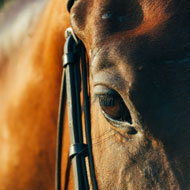Equine flu cases rise in May

There were 28 confirmed equine influenza outbreaks during May, compared to just 12 in April.
Equine influenza continues to be reported in the UK and Europe, according to the latest update from the Animal Health Trust (AHT).
The British Equine Veterinary Association is reminding its members to keep checking the AHT’s Equiflunet website for updates.
According to the latest update, there were 28 confirmed equine influenza outbreaks during May, in Sussex, Hertfordshire and Cheshire, compared to just 12 in April.
So far, all those that have been isolated and characterised by AHT have been the Florida Clade 1 strain. The majority of cases were seen in unvaccinated non-thoroughbreds.



 The Animal and Plant Health Agency (APHA) has updated its online reporting service for dead wild birds.
The Animal and Plant Health Agency (APHA) has updated its online reporting service for dead wild birds.